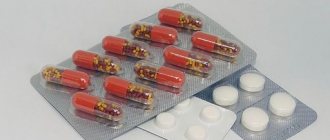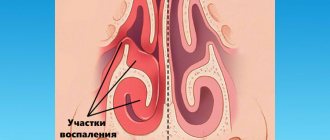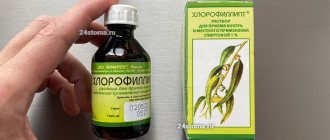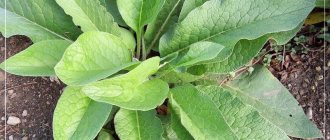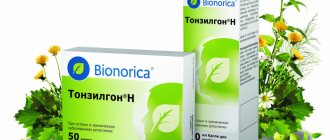Compound
The composition of the Sinupret dragee includes the following plant components: primrose flowers with a calyx, gentian root, sorrel, verbena, elderberry. The dragee also contains additional components: colloidal silicon dioxide, potato starch, water, gelatin, lactose monohydrate, sorbitol , stearic acid.
Sinupret drops contain a hydroalcoholic extract from gentian root, sorrel, primrose flowers with a calyx, verbena, and elderberry. Drops contain 19 vol.% alcohol.
The syrup contains similar active ingredients, as well as liquid maltitol, cherry flavor and purified water.
Dosage forms
Sinupret is produced and sold in various forms:
- Tablet form. This is the most commonly prescribed type of drug. It can be used to treat adults and children over ten years of age. The tablets must be swallowed and washed down with water in the required volume, always in their entirety, without chewing.
For the treatment of particularly severe diseases, such as sinusitis and sinusitis, therapists prescribe Sinupret Forte, which contains a higher concentration of medicinal substances.
- The drip form is an alcohol setting used for oral administration. This type of drug is characterized by greater effectiveness compared to tablets. The drops are absorbed into the blood faster and begin to act. This form can only be prescribed to adults and children over 10 years of age due to the increased concentration of ethyl alcohol in the composition.
Attention! It is prohibited to instill drops into the nose, since the medicine does not have a local therapeutic effect; on the contrary, the alcohol in its composition can cause damage to the mucous membrane and inflammation.
- Syrup. Contains a lower concentration of alcohol and is allowed for pregnant women and small children.
Release form
The medicine is available in the form of dragees and drops, and Sinupret syrup is also produced.
The biconvex, round dragees are covered with a green shell. The package contains 50 tablets.
Drops for oral use are transparent, yellowish-brown, and have a distinct aroma. The drops are contained in a bottle with a special dosage device, 100 ml each. A slight sediment or cloudiness is acceptable.
Syrup for children has a cherry flavor and is contained in 100 ml bottles.
Sinupret® tablets
APPROVED Order of the Ministry of Health of Ukraine March 31, 2016 No. 288 Registration Certificate No. UA/4373/02/01
INSTRUCTIONS for medical use of the drug SINUPRET ® (SINUPRET ® )
Composition of the medicinal product: active ingredients: 1 tablet contains dried medicinal plants in powder form:
| gentian root (Radix Gentianae) | 6 mg |
| primrose flowers with a calyx (Flores Рrimulae сum Сalyсіbus) | 18 mg |
| sorrel herb (Herba Rumis) | 18 mg |
| elderberry flowers (Flores Sambusi) | 18 mg |
| Verbena herbs (Nerba Verbenae) | 18 mg |
excipients: calcium carbonate (E 170), ricin oil, colloidal anhydrous silicon dioxide, acrylate copolymer, gelatin, glucose solution, lactose monohydrate, light magnesium oxide, corn starch, dextrin, montan glycol wax, potato starch, povidone, purified water, shellac, sorbitol, (E 420), stearic acid, sucrose, talc, titanium dioxide (E 171), anhydrous sodium carbonate, quinoline yellow (E 104), indigo carmine (E 132).
Dosage form. Film-coated tablets. Round, biconvex tablets, coated with a green color with a smooth surface.
Manufacturer's name and location. Bionorica SE, Kerchensteinerstrasse 11-15, 92318 Neumarkt, Germany.
Pharmacotherapeutic group. Combined drugs that are used for coughs and colds. ATC code R05X.
The components that make up the herbal medicine have complex activity, which is manifested in secretolytic action, decongestant, anti-inflammatory, immunostimulating and antiviral effects.
The active components of Sinupret® inhibit the reproduction of various respiratory viruses, such as influenza A virus, parainfluenza and RSV (respiratory syncytial viruses).
Under the influence of the drug, secretion is regulated and tissue swelling is reduced. Drainage and ventilation of the paranasal sinuses are restored, nasal congestion is eliminated, and the protective function of the respiratory tract epithelium is normalized. The effectiveness of antibiotic therapy increases.
Indications for use. Acute and chronic inflammation of the paranasal sinuses.
Contraindications. Increased individual sensitivity to any of the active or auxiliary substances of the drug, as well as increased sensitivity to other types of primrose.
Safety precautions for use.
The drug should not be taken by patients with hereditary intolerance to fructose, galactose, lactase deficiency, glucose-galactose malabsorption or sucrase-isomaltase deficiency.
Note for diabetic patients. 1 film-coated tablet contains an average of 0.01 bread units.
If symptoms of the disease do not disappear after 7-14 days of treatment or recur periodically, you should consult a doctor.
Special instructions.
Use during pregnancy or breastfeeding. During pregnancy or breastfeeding, the drug can be used after consultation with a doctor in cases where the benefit of use outweighs the potential risk to the fetus/child.
The ability to influence the reaction speed when driving a vehicle or a robot with other mechanisms. No special precautions are required.
Children. For the treatment of preschool children (under 6 years old), who are prescribed smaller doses, I use Sinupret in the form of drops or syrup.
Method of administration and dose.
Unless otherwise directed by your doctor, adults and children over 12 years of age take 2 tablets 3 times daily. Children aged 6 to 11 years – 1 tablet 3 times a day.
The tablets should be taken unchewed with a small amount of liquid.
Typically the recommended course of treatment is 7-14 days.
If symptoms of the disease do not disappear after 7-14 days of treatment or recur periodically, you should consult a doctor.
Overdose. At the moment, cases of intoxication are unknown.
If the dose is exceeded, the manifestation of these adverse reactions may increase.
Treatment of intoxication: if signs of poisoning or overdose occur, symptomatic therapy is necessary.
Side effects. Gastrointestinal disorders (stomach pain, nausea, vomiting) are sometimes observed. Reactions of hypersensitivity of the skin (rashes, redness of the skin, itching), as well as allergic reactions (Quincke's edema, buttocks, swelling of the face) rarely occur. If any adverse reactions occur, you should stop taking the drug and consult a doctor.
Interaction with other drugs and other types of interactions. No interactions with other drugs were observed. Combination with antibiotics is possible and advisable.
Best before date. 3 years.
Do not use after the expiration date stated on the package.
Storage conditions. Store in original packaging at a temperature not exceeding 30 °C out of the reach of children.
Package. 50 tablets in a blister, placed in a cardboard package.
Vacation category. Over the counter.
pharmachologic effect
The abstract indicates that the drug has secretomotor, secretolytic and anti-inflammatory effects. The complex effect of all plant components included in the composition is noted.
Verbena normalizes metabolism and improves liver condition. Acts as a tonic, analgesic, anti-inflammatory, antispasmodic, astringent. As part of the product, Sinupret thins the viscous secretion and provides an antiallergic effect.
Primrose acts as a sedative, expectorant and antispasmodic. Under its influence, secretory activity is activated, and sputum is removed faster.
Sorrel has anti-allergic, wound-healing, hemostatic, antiseptic and anti-inflammatory effects.
Black elderberry provides a diaphoretic, disinfectant, and anti-inflammatory effect. As part of the medicine, it relieves swelling of the mucous membranes.
Gentian stimulates secretion, activates bile production, and increases appetite.
Thus, a complex effect is ensured, causing the medicine to reduce the viscosity of sputum, eliminate bronchospasm, stimulate the immune system , and act as an antiviral and anti-inflammatory agent. Under its influence, nasal congestion is reduced, the process of mucus and sputum discharge is facilitated, and mucostasis is eliminated.
During the treatment, tissue swelling decreases, ventilation and drainage of the sinuses are restored. The protective function of the respiratory tract epithelium is also normalized.
When taken together, Sinupret enhances the effectiveness of antibiotic .
Sinupret for otitis media
Also, sometimes Sinupret is prescribed for otitis media. The mechanism of development of acute otitis media is similar to how acute sinusitis is formed. That is, with both otitis and sinusitis, the process of discharge of secretions from the ear or paranasal sinus is disrupted. Sinupret as part of complex therapy for medium-sized patients has proven to be quite effective. It stimulates the liquefaction and removal of secretions, eliminates swelling, and activates air circulation in the middle ear cavity. This produces an anti-inflammatory effect, and the epithelium becomes resistant to infectious agents. Antibacterial therapy is better and more productive.
Instructions for use of Sinupret (Method and dosage)
Sinupret drops, instructions for use
Please note that the drops are not instilled into the nose; they must be taken orally. Adults and children over 12 years of age should drink 50 drops of the drug three times a day. Children aged 6 to 11 years should drink 25 drops three times a day.
For children from 2 to 5 years old, the medicine is prescribed 15 drops 3 times a day.
Instructions for use for children of Sinupret stipulate that the drops must be diluted; adults should drink the drug undiluted.
Sinupret tablets, instructions for use
Adults and children over 12 years of age need to take 2 sinupret tablets. three times a day, it doesn’t matter, before or after meals.
Children from 6 to 12 years old are advised to drink 1 tablet 3 times a day.
Sinupret tablets for the common cold are not prescribed to children under 6 years of age.
Sinupret syrup, instructions for use
The syrup is prescribed mainly to children. If adults or children over 12 years of age drink the product, they are advised to take 7 ml of the drug three times a day.
Children from 6 to 11 years old are advised to drink 3.5 ml of the product 3 times a day.
For children from 2 to 5 years old, the medicine is prescribed 2.1 ml of syrup 3 times a day.
The syrup should be shaken before use; if necessary, the dose can be diluted to 1 tbsp. l. water.
Taking any form of medication continues for 1-2 weeks. If there is no improvement, you should consult a doctor.
Sinupret for sinusitis is taken according to the regimen prescribed by the doctor. For sinusitis, you should strictly adhere to the prescribed dosage and take the drug under the supervision of a specialist.
You can find out more about what Sinupret is used for, how to take Sinupret drops, syrup, tablets, and what they are used for, from your doctor.
Sinupret during pregnancy and lactation
It is recommended to use Sinupret during pregnancy only after consultation and prescription by a doctor. As for the dosage form, preference should be given to pills, since the drops contain alcohol.
Sinupret during pregnancy
The first trimester of pregnancy and Sinupret are incompatible. At this time, the formation of internal organs and systems of the fetus occurs.
The second and third trimester of pregnancy are more loyal to taking the drug Sinupret. Prescription is possible if the benefits to the pregnant woman outweigh the possible risks to the fetus. Moreover, a woman drinks Sinupret in the minimum effective dosage and under the strict supervision of a doctor. Side effects in any manifestation and intensity are a signal to discontinue the drug.
Sinupret is not prescribed during lactation due to insufficient clinical studies and data on the entry of active substances into breast milk. If there is an urgent need to use the medicine, breastfeeding is suspended.
Contraindications
The medicine should not be used if you are highly sensitive to its components. It is not prescribed to children under 2 years of age.
Sinupret drops, as well as syrup, cannot be used for the following conditions and diseases:
- epilepsy;
- liver diseases;
- brain diseases;
- alcoholism;
- pregnancy, natural feeding.
Sinupret tablets should not be used for the following diseases and conditions:
- sucrase-isomaltase deficiency;
- intolerance to galactose, fructose;
- lactase deficiency;
- disturbances in the absorption of glucose-galactose.
What is better – drops or tablets – should be determined by a specialist in each specific case.
Indications and contraindications
The main diseases for which Sinupret is used are the following pathologies:
- Rhinitis is an inflammation of the nasal mucosa of a viral or other infectious etiology.
- Allergic reactions.
- Frontites.
- Sinusitis.
- Acute or chronic tracheobronchitis.
Like most drugs, Sinupret is contraindicated for use in a number of cases:
- Less than two years old.
- Individual intolerance to one or a number of components of the drug.
- Pregnancy - in the case of using a drop form of the drug or syrup, as they contain alcohol, which negatively affects the health of the unborn baby.
- Lactation period (there are no reliable studies, but it is recommended to refrain from taking the drug if the child has not reached the age of two).
- Alcoholism.
- Peptic ulcer.
You should also take Sinupret with caution in the following pathological conditions:
- epilepsy;
- traumatic brain injuries;
- functional and organic disorders in the liver.
special instructions
It should be taken into account that the product contains ethanol , 16.0-19.0% of the volume.
When preparing drops for oral administration, you should hold the bottle vertically and shake it beforehand.
Please note that drops cannot be instilled into the nose.
Before taking Sinupret tablets for sinusitis , people with diabetes should take into account that 1 tablet contains less than 0.03 XE.
The ability to drive vehicles or operate precision machinery is not affected.
Inhalations with Sinupret for children are sometimes practiced When using this inhalation product, it is important to consult your pediatrician.
Side effects of Sinupret
Most often, the drug is well tolerated by patients and does not cause unwanted reactions. Some patients may experience gastrointestinal disorders, accompanied by gastric and intestinal dyspepsia, as well as abdominal pain. Allergic reactions may also occur in the form of urticaria or Quincke's edema, which quickly disappear immediately after discontinuation of the drug. Dizziness and shortness of breath may occur if the drug is overdosed or taken for too long.
Despite the fact that Sinupret rarely causes unwanted side effects, consultation and clear prescriptions from your doctor are necessary before using it.
Sinupret's analogs
Level 4 ATC code matches:
Aflubin
Kofex
TeraFlu Bro
Suprima-Broncho
Bronchostop
Doctor Mom
Tonsilgon N
Pentaflucin
Tonsipret
Insti
Imupret
Antigrippin-Maximum
Antigrippin-ANVI
Atma
Viburkol
Travisil
RiniCold Broncho
Umkalor
Stodal
AnviMax
When discussing Sinupret and its analogues, it should be noted that there are no analogues of this medicine based on the active substance. However, some drugs have a similar effect, since they contain some of the active substances that are in Sinupret. Such medicines are Angin-gran , Aflubin , Corizalia , Agri , Fitoflox . However, their pharmacological action is different.
The price of analogues in tablets and other forms depends on the manufacturer and other factors. Sinupret and Sinupret Forte products differ in their effects. Sinupret Forte has a prolonged effect.
Which is better: Sinupret or Cinnabsin?
Cinnabsin is also used to treat sinusitis and sinusitis in acute and chronic forms. It is not used for children under 3 years of age, while Sinupret is contraindicated for children under 2 years of age. Cinnabsin has a different composition; it also acts as an immunostimulating agent. The doctor determines which drug to prescribe in a particular case.
For children
Sinupret effectively relieves symptoms of respiratory tract diseases accompanied by inflammation. But it is worth remembering that the effectiveness of treatment largely depends on diagnosis and clearly followed instructions for use. Especially when Sinupret is prescribed to a child. So, drops are contraindicated for children under 2 years of age. And the pills are for children under 6 years old. For children from 2 to 10 years old, pediatricians and ENT specialists recommend Sinupret in the form of a syrup with a lower alcohol content. It is designed specifically for children.
Reviews of Sinupret
Those reviews about Sinupret for children that parents leave online are mostly positive. Users write that the product helps children with sinusitis , relieving acute symptoms within a few days.
Reviews of Sinupret drops, as well as reviews of Sinupret tablets, indicate that the medicine helps relieve nasal congestion and reduce the severity of swelling. It is noted that the remedy is often effective without concomitant treatment with antibiotics .
Another positive is that Sinupret tablets can be used during pregnancy. Pediatricians (Komarovsky and others) write that this remedy is non-toxic and safe.
Sinupret for sinusitis
Sinupret for sinusitis
If a patient is diagnosed with sinusitis, then Sinupret will most likely be included in complex antibacterial therapy. A prerequisite for recovery in this case is strict adherence to the doctor’s prescription - dosage and duration of treatment. Sinupret does not dry out the nasal mucosa, promotes the removal of secretions and eliminates swelling.
Sinupret price, where to buy
The price for Sinupret in drops ranges from 390 to 490 rubles. The price of Sinupret tablets is 430 – 500 rubles per pack of 50 pcs.
Dragees in Ukraine (Kyiv, Odessa, Kharkov) can be bought at a price of 170 hryvnia per pack. The cost of a package of drops is from 158 hryvnia. The price of Sinupret syrup is from 150 hryvnia. You can find out exactly how much the drug costs at the pharmacy.
- Online pharmacies in RussiaRussia
- Online pharmacies in UkraineUkraine
- Online pharmacies in KazakhstanKazakhstan
ZdravCity
- Sinupret tablets p.p.o.
50 pcs. Rottendorf Pharma GmbH / Bionorica SE 492 rub. order - Sinupret drops for internal approx. 100mlBionorica SE
RUR 556 order
Pharmacy Dialogue
- Sinupret tablets No. 50Bionorica
RUR 579 order
- Sinupret drops 100mlBionorica
RUB 506 order
show more
Pharmacy24
- Sinupret 100 ml oral drops Bionorika SE, Nimechchina
158 UAH.order - Sinupret 100 ml syrup Bionorica SE, Nimechchina
150 UAH order
- Sinupret forte No. 20 tablets Bionorica SE, Nimechchina
178 UAH order
- Sinupret N50 tablets Bionorica SE, Nimechchina
171 UAH order
- Sinupret extract No. 20 tablets Bionorica SE, Nimechchina
219 UAH. order
PaniPharmacy
- Sinupret tablets Sinupret tablets. No. 50 Germany, Bionorica
184 UAH order
- Sinupret forte tablets Sinupret forte tablets. No. 20 Germany, Bionorica
196 UAH order
- Sinupret liquid Sinupret drops 100ml Germany, Bionorica
166 UAH order
- Sinupret liquid Sinupret syrup 100ml Germany, Bionorica
155 UAH order
- Sinupret extract tablets Sinupret extract tablets. No. 20 Germany, Bionorica
236 UAH order
show more


